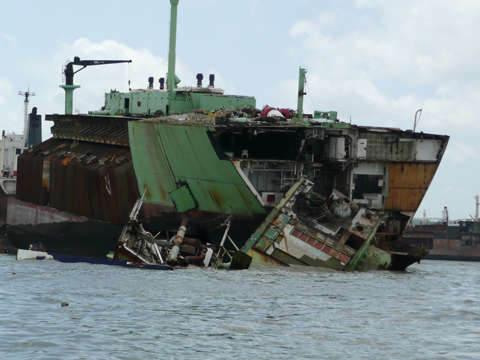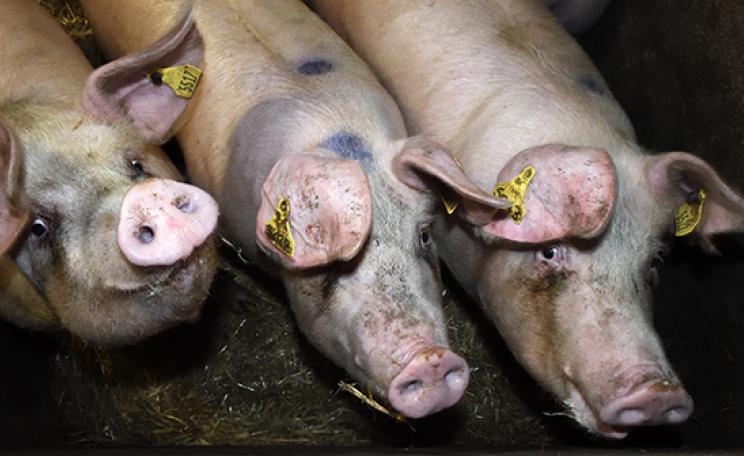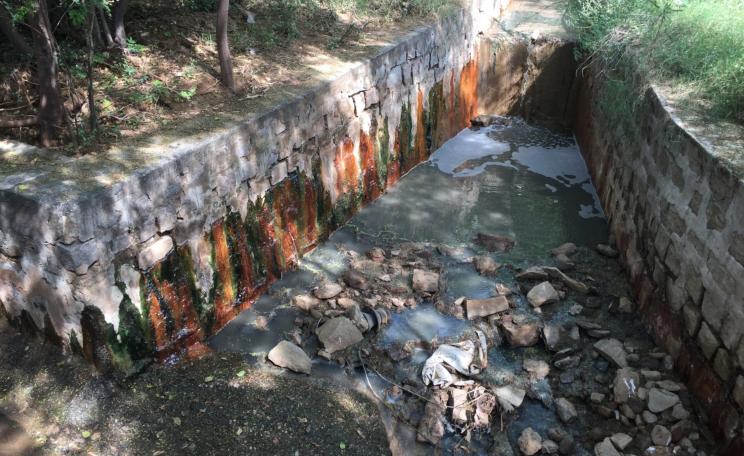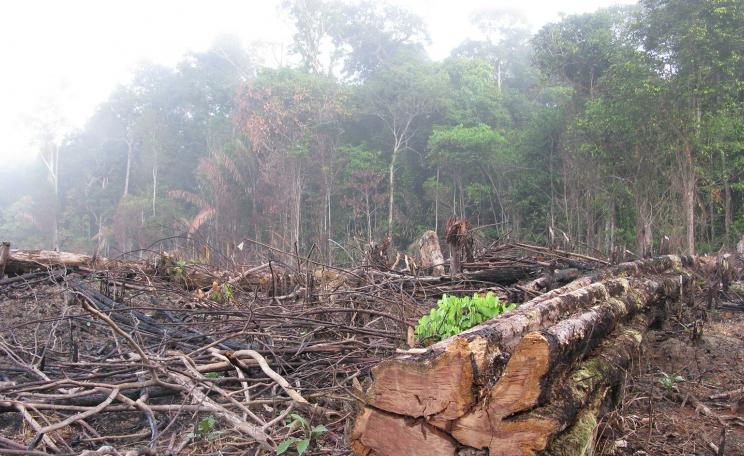A favourite in soups, with pasta or served tapas-style, fresh clams have become an increasingly popular - and locally sourced - seafood treat.
But the Ecologist has learnt that the sought-after mollusc is at the centre of a controversial and lucrative underground trade in shellfish revealed following a sting operation by the Gangmasters Licensing Authority (GLA), fisheries protection officers and environmental health teams.
In a coordinated series of raids on Rustington beach in West Sussex, a fish processing factory in Portsmouth, and at London's world-famous Billingsgate fish market, operatives from the GLA, the Sussex Sea Fisheries District Committee and other agencies, backed up by police, last week arrested a number of people under the Gangmasters (Licensing) Act 2004 and seized a quantity of clams – suspected of being harvested from an unclassified source – along with computers and paperwork.
The operation was carried out following allegations of unlicensed gangmaster activity on Sussex beaches and concerns that potentially contaminated seafood is being traded on a commercial scale before finding its way onto dinner plates in the UK and abroad.
Poisoning threat
Although it is not illegal to harvest shellfish for personal consumption, strict food safety regulations make it an offence for clams – and other molluscs – to be gathered from unclassified fisheries and then sold on a commercial basis.
Shellfish are frequently associated with instances of food poisoning, particularly when eaten raw or if not properly cooked, as they ingest bacteria and viruses that are potentially harmful to humans. Salmonella, novovirus and E.Coli can all be found in contaminated molluscs.
Residents in Rustington have complained that gangs of clam diggers have been targeting the area's beaches for more than a year: 'Sometimes ten or twenty [people] turn up at low tide, dressed in yellow fishing clothing and carrying spades and buckets,' one local woman – who wanted to remain anonymous – told the Ecologist. 'They come down in cars, vans and on one occasion a mini-coach... sometimes in the day, sometimes at night, it's not always the same faces.'
Locals say the gangs, which sometimes turn up twice a day to take advantage of the low tides, appear highly organised and have been aggressive when challenged: 'They say they are digging [the clams] just for bait and on one occasion when I approached them and took a photo one guy threatened me,' the woman said.
Paul Whitehouse, Chairman of the GLA, said: 'The disruption to the local community near the beach and the serious health issues related to the possible consumption of contaminated shellfish made this a priority for agencies involved. This is a real determination to resolve this issue not just as a sharp shock to stop it, but to deal with the whole supply chain and cut off the avenues for this to happen again.'
Arrests
Those involved in the operation have confirmed that three arrests were made on the beach in Rustington, with a further person detained at an unspecified location in Portsmouth. Investigators believe the clams were being harvested in Sussex and shipped to Hampshire before being processed and dispatched to Billingsgate in London – a major hub for the buying and selling of seafood.
 |
| Clam harvesters in the Thames estuary, supposedly collecting only for personal consumption, have been seen to shell the fish on the shore and take away buckets of meat, presumably for sale to restaurants. Image: Gangmasters Licensing Authority |
Clams on sale at the market were last week taken by London-based health officers and sent for forensic examination. Environmental health officers subsequently confirmed there are concerns over potential E.Coli contamination at the Sussex beach involved.
Roger Wood, Deputy Head of Environmental Health at Arun District Council, said: 'This combined operation was the result of frequent reported incidents to Environmental Health that illegal shellfish harvesting was observed on the beaches of Littlehampton & Rustington. This authority is determined that such illegal activities are prevented and potentially unsafe food is prevented from entering the food chain via unscrupulous operators.'
A spokesperson for the Food Standards Agency (FSA) said: 'Shellfish must be harvested from a classified production area and the controls applied before the shellfish can be sold to consumers. This reduces the risks of bacteria and viruses being present which is particularly important when shellfish are eaten raw, as is often the case with oysters.
'Shellfish harvesting areas can be affected by algal toxins which are absorbed by shellfish. Classified areas are monitored for the algae and algal toxins so that areas can be closed when toxins are found at levels that can cause illness.'
A national problem
Fish dealers have traditionally sourced shellfish from licensed fisheries approved by the FSA and local authorities, and which are subjected to strict monitoring and purification procedures.
But the Ecologist has been told that increasing quantities of clams and other shellfish are now being harvested from unlicensed areas by gangs operating throughout the UK.
One fisheries enforcement officer with a detailed knowledge of the trade said: 'This is a national problem, a systematic, organised trade, with [shellfish] being taken from unregulated beds and sold on. This stuff is going into the full-on supply chain, to restaurants, via markets, and even exported abroad.'
The source stressed that whilst there was no evidence the seafood was necessarily contaminated, the problem was that 'you don't know if it has been purified, or if it is safe [to eat]'.
The fisheries officer claimed the trade was 'highly lucrative' with 'gangs, shady characters' prepared to travel the country to harvest clams and other molluscs: 'You've got groups of ten or twenty people able to fill between 20 to 40 sacks [with clams] per day... the rewards are high enough to travel'.
Some gangs have been reported to make up to £2000 per day.
Clashes with fishermen
The source said the underground trade in shellfish was only now being recognised because the issues involved often fell between a number of different agencies – including those working in health protection, fisheries and labour conditions – each with separate remits.
Illegal clam fishing has been reported in Poole Harbour, where boats have been used by gangs to harvest shellfish from prohibited areas. The Southern Sea Fisheries Committee, which enforces fisheries legislation, says there have been clashes with illegal fishermen, and that their buildings have been attacked, boats sabotaged and enforcement officers threatened.
Seahorse deaths in Poole Harbour have been recently linked to clam fishing, and there are concerns over the potential impact of the activity on the conservation of fishery stocks and the food chain of seabirds.
In the Thames Estuary, officials say that oyster harvesting has been taking place with increasing frequency. Fisheries agencies say that although some is for personal consumption, there is increasing concern that quantities are ending up in London restaurants. 'We've had 30 or 40 people down there at weekends, and witnessed [people] shelling the fish on the beach and carrying away buckets of meat,' one official told the Ecologist.
Backlash
Legitimate fishermen are worried that the practice could cause problems with food poisoning – and a backlash against the product.
In Scotland and the north west of England there have been several instances of shellfish from unclassified sources being harvested for sale to restaurants.
Tim Carter of the GLA said he was not currently aware of other specific cases of gangs harvesting shellfish for commercial sale, but said it was an 'informal sector of the economy' that was 'contacts-based and a lot less likely to have paperwork involved than other sectors'.
Shellfish harvesting hit the headlines in 2004 after 21 Chinese cockle pickers drowned in Morecambe Bay off the Lancashire coast. Several gangmasters were later convicted in relation to the incident.
Andrew Wasley is a journalist with the investigative agency Eco-Storm
| READ MORE... | |
 |
INVESTIGATION What is the health impact of air pollution? After the Clean Air Acts banished the smogs of the 50s and 60s, many thought that air pollution problems had disappeared. They were wrong |
 |
INVESTIGATION The human cost of 'super-clean' sugar ethanol Brazil is hailed as a biofuels success story - producing and using ethanol from high yielding crops within the country. But those indigenous families who have been displaced by sugar cane cultivation see things differently |
 |
INVESTIGATION How we poison Bangladesh with toxic ship carcasses Workers are dying in Bangladesh’s shipyards because the west's shipping industry - including UK companies - is not taking responsibility for the disposal of ageing vessels |
 |
INVESTIGATION Jatropha biofuels: UK investors sell controversial crop as 'green' UK fund managers are selling investments in jatropha plantations as a wallet-swelling, planet-saving financial bonanza. But the reality for poor farmers is very different |







